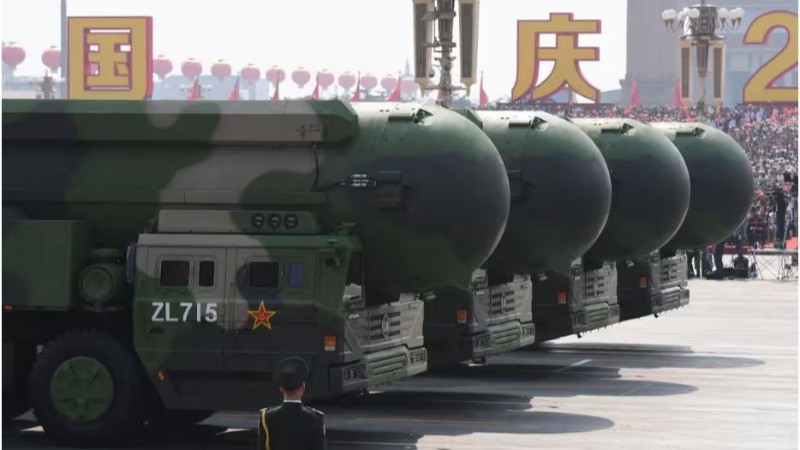
China has successfully conducted its first intercontinental ballistic missile (ICBM) test in decades, firing a missile with a dummy warhead into the Pacific Ocean. The launch occurred at 08:44 local time (04:44 GMT) on Wednesday and the missile landed in designated sea areas, as reported by Beijing's defense ministry. They described the test as "routine" and part of annual training exercises.
Details about the specific type of missile and its flight path have not been disclosed, although Chinese state media noted that Beijing had informed "the countries concerned" beforehand. However, Japan's government claimed it received no prior notice about the launch. Government spokesman Yoshimasa Hayashi stated, "There was no notice from the Chinese side in advance."
Historically, China's nuclear tests have been conducted within its borders, primarily launching ICBMs into the Taklamakan Desert in Xinjiang. This marks the first instance since 1980 that China has launched an ICBM into international waters. Ankit Panda, a nuclear weapons expert at the Carnegie Endowment for International Peace, emphasized the significance of this launch, noting that it is unusual for China to conduct such tests routinely or annually.
The Japanese government reassured that there was no damage to its vessels following the launch. Japan’s defense ministry is actively monitoring Chinese military movements and remains vigilant. "We will continue to collect and analyze information," the ministry stated.
Drew Thompson, a researcher at the Lee Kuan Yew School of Public Policy, commented on the implications of the launch, suggesting it serves as a warning amidst escalating tensions between China and neighboring countries like Japan and the Philippines, as well as ongoing disputes with Taiwan. He pointed out that while China claims the launch is not aimed at any specific nation, the geopolitical context complicates that assertion.
John Ridge, a US-based defense analyst, suggested that the test could also be interpreted as a show of force directed at the United States. Although relations between Beijing and Washington have seen some improvement, tensions remain, particularly due to China’s assertive actions in the region.
Recent interactions between China and the Philippines have led to maritime collisions in contested waters, and Japan reported scrambling fighter jets last month to intercept a Chinese spy plane it accused of violating its airspace.
Taiwan's defense ministry noted an increase in Chinese military activities, stating that 23 Chinese aircraft had been observed conducting long-range missions around Taiwan. Analysts describe these incursions as part of a strategy to normalize military presence in the area.
In July, China halted nuclear arms control discussions with the U.S. in response to American arms sales to Taiwan. Last year, allegations of corruption led to the replacement of two leaders within the People's Liberation Army's Rocket Force, which oversees China’s nuclear arsenal. The Pentagon estimates that China possesses over 500 operational nuclear warheads, with projections suggesting this could exceed 1,000 by 2030. However, this figure remains significantly lower than the arsenals claimed by the U.S. and Russia.